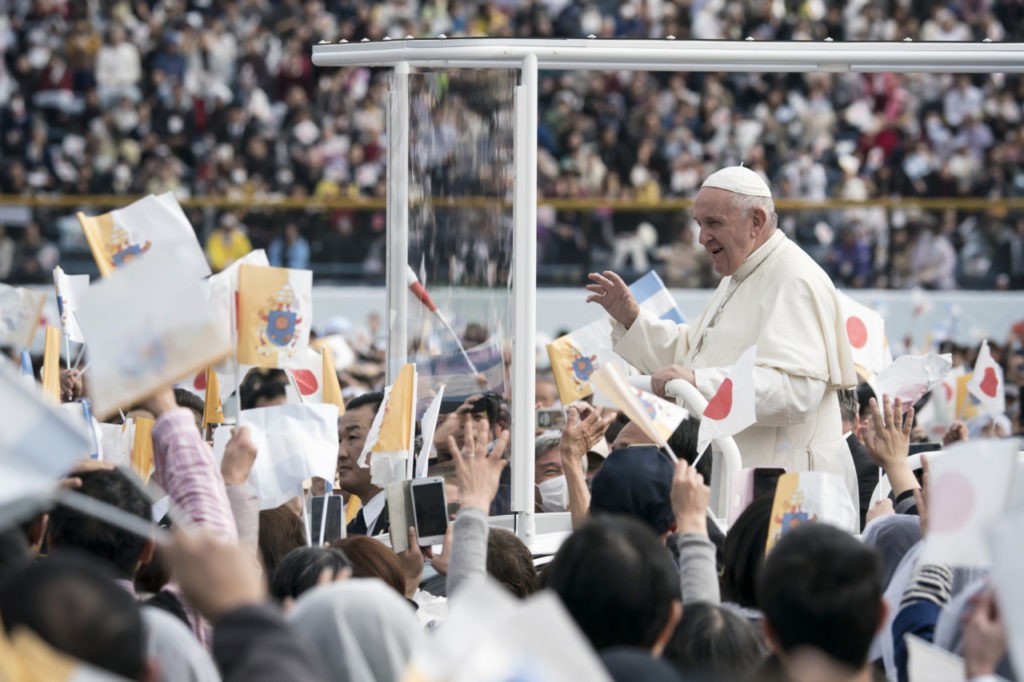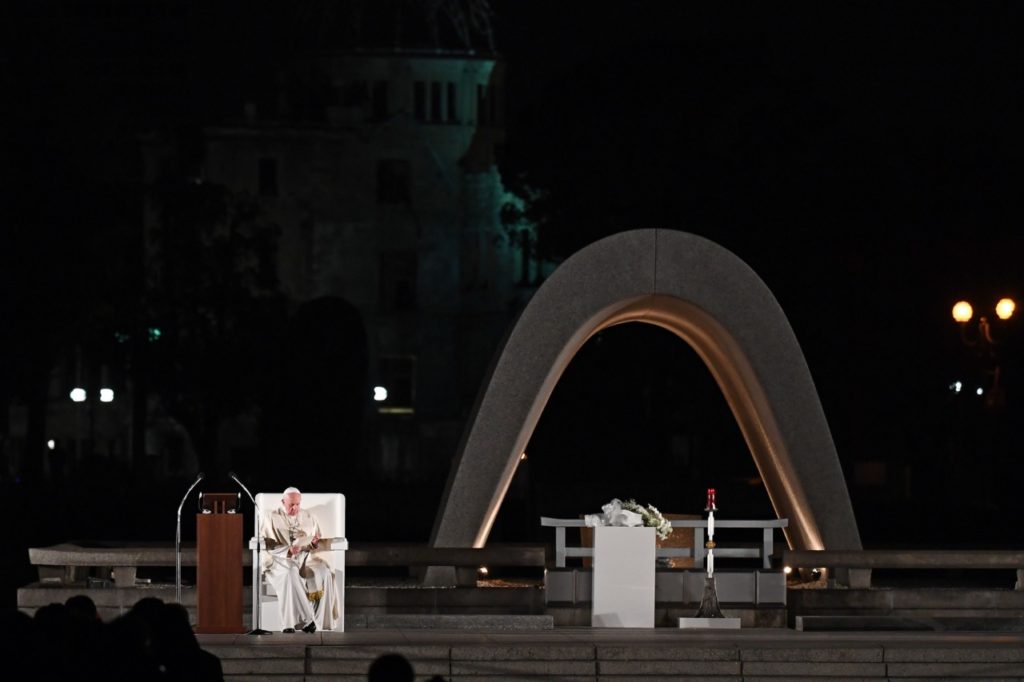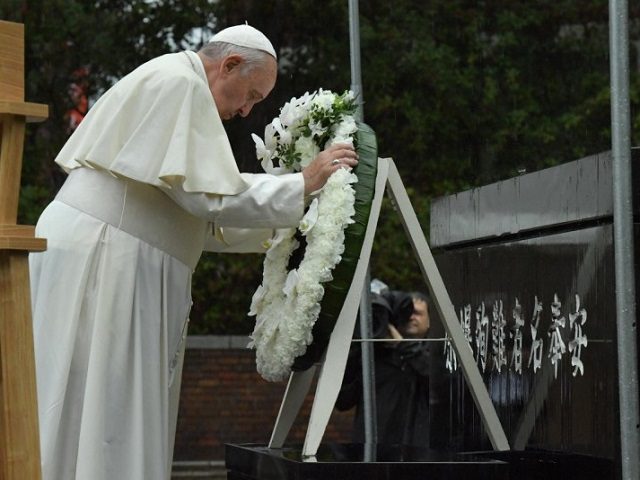Pope Francis delivered an impassioned speech against nuclear weapons at the Atomic Bomb Hypocenter Park in Nagasaki Sunday, declaring the arms trade “cries out to heaven.”
“This place makes us more aware of the pain and horror we can inflict on each other as human beings,” the pope told his hearers, in reference to the 1945 bombing of the city. “The bombed cross and the statue of the Madonna, recently discovered in the Cathedral of Nagasaki, remind us once again of the unspeakable horror the victims and their families suffered in their flesh.”
In a speech meant to be the centerpiece of his six-day Asia visit, the pontiff insisted that the possession of nuclear weapons and other weapons of mass destruction threatens the deepest desires of the human heart for peace and security.
“Our world lives the perverse dichotomy of wanting to defend and guarantee stability and peace on the basis of a false security supported by a mentality of fear and mistrust, which ends up poisoning relations between peoples and preventing any possible dialogue,” he said.

Pope Francis waves as he arrives for a Holy Mass at Nagasaki Baseball Stadium on November 24, 2019 in Nagasaki, Japan. Pope Francis is making only the second ever Papal visit to Japan and is scheduled to visit Hiroshima and Tokyo where he will meet with newly-enthroned Emperor Naruhito and Prime Minister Abe and also hold Mass at Tokyo Dome after Nagasaki. (Photo by Tomohiro Ohsumi/Getty Images)
The fear of mutual destruction or total annihilation is incompatible with peace and international stability, Francis said, which can only come from “a global ethic of solidarity and cooperation” based on interdependence and co-responsibility.
The pope also decried the money spent on the arms race, which he said could be better used for other purposes.
The arms race “wastes precious resources that could instead be used for the benefit of the integral development of peoples and for the protection of the natural environment,” he said. “In today’s world, where millions of children and families live in inhuman conditions, the money spent and the fortunes earned in manufacturing, modernizing, maintaining, and selling ever more destructive weapons are a constant assault that cries out to heaven.”
Millions of men and women everywhere aspire to a world free from nuclear weapons, the pope declared, which can only come about through a concerted effort of all to build up “mutual trust that will break the currently prevalent dynamics of distrust.”
As he has done on other occasions, the pope denounced what he calls the “erosion of multilateralism,” which has been the fruit of pro-sovereignty, populist, and nationalist movements.

Pope Francis attends a ceremony at the Peace Memorial Park during his visit to the Japanese city of Hiroshima on November 24, 2019. – Pope Francis condemned the use of nuclear weapons as “a crime,” as he brought his call for an end to atomic weapons to the Japanese city of Hiroshima. (Photo by CHARLY TRIBALLEAU/AFP via Getty Images)
“We are witnessing an erosion of multilateralism, even more serious in the face of the development of new weapons technologies,” he said, an approach that “seems rather inconsistent in the current context marked by interconnection.”
Francis urged leaders to give flesh to “the main international legal instruments of nuclear disarmament and non-proliferation, including the Treaty on the prohibition of nuclear weapons.”
“In the conviction that a world without nuclear weapons is possible and necessary, I ask political leaders not to forget that these do not defend us from the threats to national and international security of our time,” he insisted.
We need to consider the “catastrophic impact” from the use of nuclear weapons from a humanitarian and environmental point of view, he said, “refusing to feed a climate of fear, distrust, and hostility, fueled by nuclear doctrines.”
“May prayer, the tireless search for the promotion of agreements, the insistence on dialogue be the ‘weapons’ in which we place our trust and also the source of inspiration for efforts to build a world of justice and solidarity that provides real guarantees for peace,” he said.

COMMENTS
Please let us know if you're having issues with commenting.